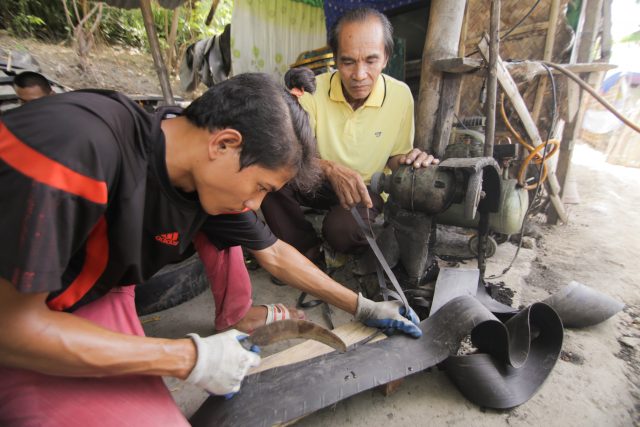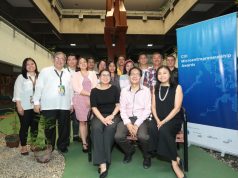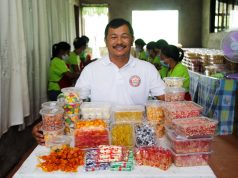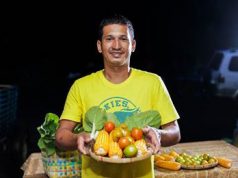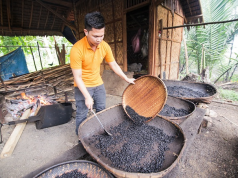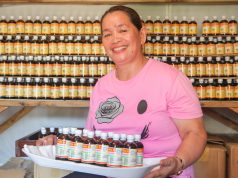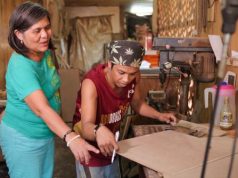MANILA – Negros Occidental’s Manuel Iwayan had little formal education but he has mastered the 3R’s. Not the 3R’s of basic education—reading, ‘riting and ‘rithmetic — but the mantra of ecological warriors – reduce, reuse and recycle.
Iwayan’s deep environmental consciousness is not surprising. San Carlos City, where he hails, is not as highly urbanized as the Philippine capital Manila and neighboring Cebu, and has adopted and transformed itself into an eco-zone. It has been recognized as the most sustainable city in Southeast Asia.
San Carlos hosts thousands of solar panels that supply energy to the Visayan grid, provider of electricity to power cooperatives, industries, commercial establishments and households in that part of the country.
Iwayan is the recipient of the annual Citi Microentrepreneurship Awards (CMA) Special Award for Green/Sustainable Business, that recognizes a microenterprise “that participates in environment-friendly activities to ensure that all processes, products, and manufacturing activities adequately address current environmental concerns while maintaining a profit.
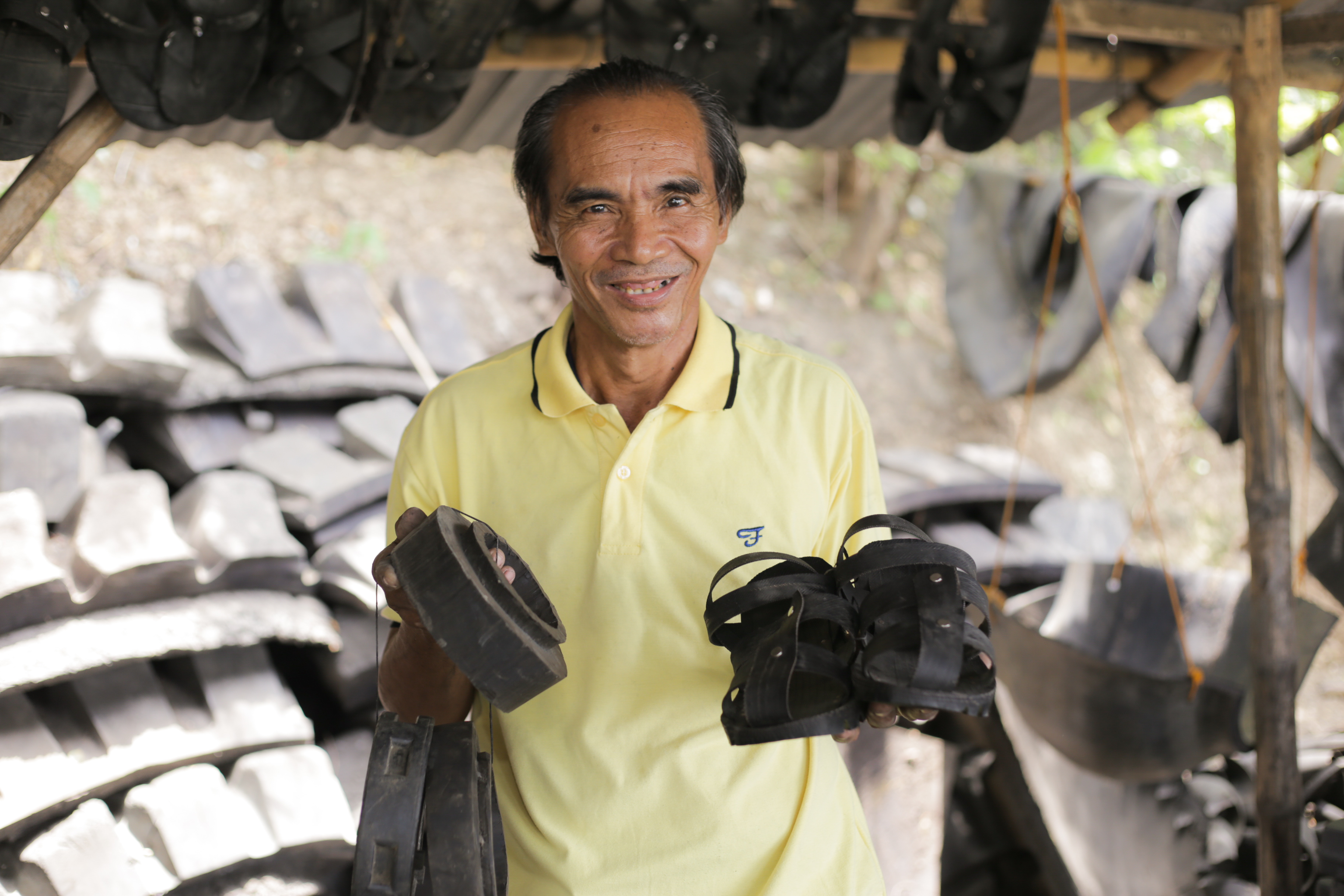
Now on its 14th year, CMA is an annual nationwide search for the most outstanding micro business owners. This partnership between Bangko Sentral ng Pilipinas, Citi Philippines, and Microfinance Council of the Philippines, Inc. recognizes outstanding entrepreneurs with assets of P3 million or less, who have achieved remarkable growth as indicated by employment generation, profits and sales turnover, and have contributed to community development. Entrepreneurs should also have maintained healthy repayment records on loans, even as they build their savings.
Funded by Citi Foundation, CMA was launched in 2002 to celebrate Citi’s 100th year in the Philippines and in Asia. The award has since recognized more than 100 winners across the country.
Before Iwayan got started on his rubber tire recycling business, he was already concerned about the pile-up of trash. “I saw on TV, especially when the weather was bad, that there was so much trash (scattered in the city),” he said.
Iwayan got the idea on how he could contribute to San Carlos’ environmental initiatives, as a driver in a hacienda. He saw that old used tires that had outlived their usefulness were simply being thrown away, adding to the solid waste that the city had to dispose of properly. “In San Carlos, there is a lot of discarded old tires. Wherever I went, I saw them so I decided to collect them and turn them into other useful things,” he said.
When his employer bought flower pots made of rubber tires, Iwayan decided to do his bit to help reduce trash by doing his own recycling and reusing of discarded rubber tires by making his own flower pots. He collected the discarded tires around the city and sold his first two rubber flower pots to his own employer, his first customer.
Based in Sitio Cot-cot, Barangay Rizal, Iwayan started his business in the 1970s with a capital of only P45, while still employed as a driver. He augmented his income by finding new uses for old rubber tires that he collected from the city’s garbage dumps. As demand for his products slowly but steadily grew, he had to start buying his raw materials, going as far as the cities of Bacolod, Negros Occidental’s capital, Toboso, and Escalante because San Carlos no longer had enough for his needs.
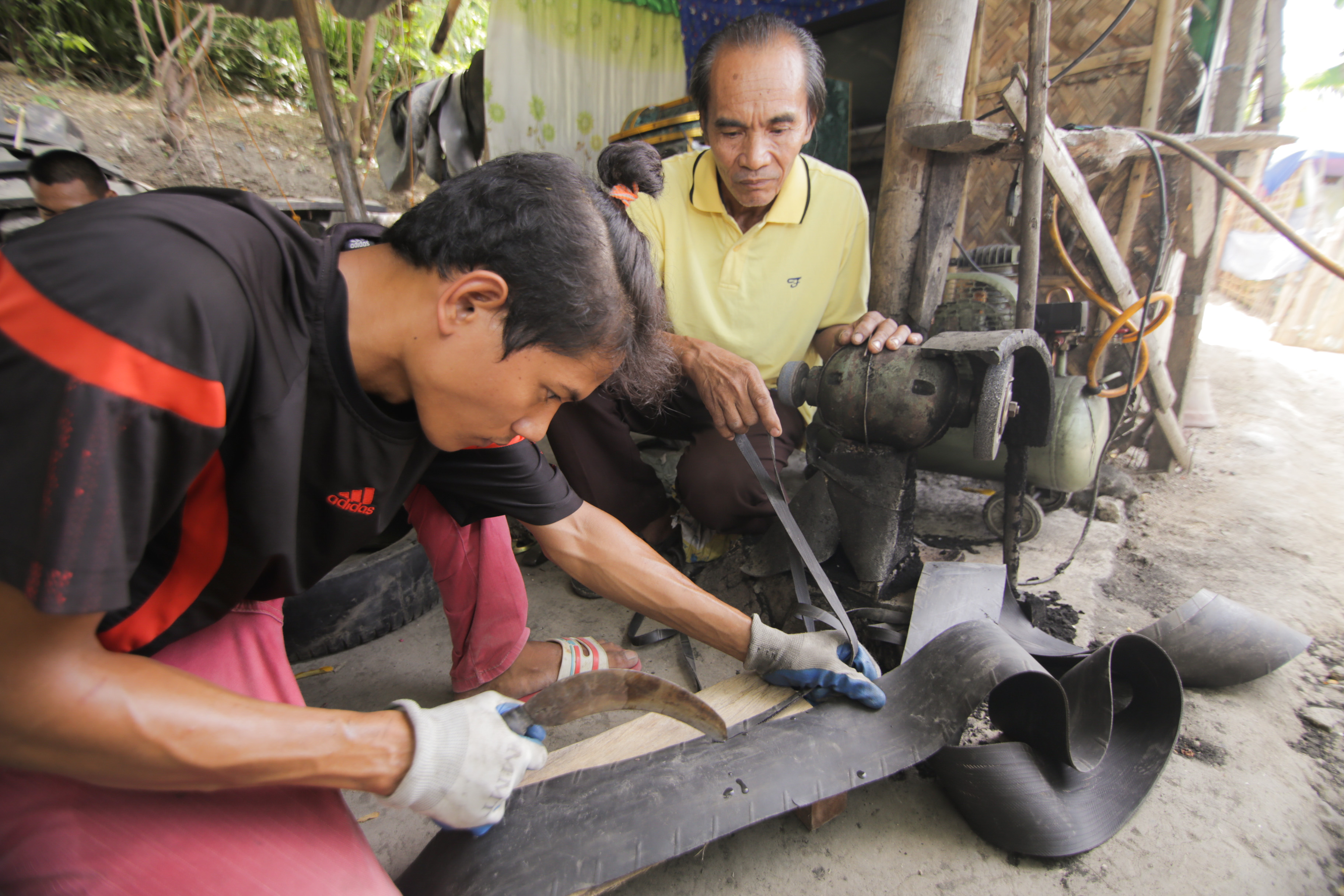
Calling his creations “obra,” Iwayan went from making plant pots to garbage bins to garden furniture sets and a whole lot of stuff in between. He made swings and other playground facilities, rubber bushing and other parts for motor vehicles that became popular even outside his community. Drivers of vans, trucks and motorbikes visited his shop to order new custom-made rubber bushings.
Needing to expand his business to meet the growing demand for his products, Iwayan took out a loan in 2010 from Valiant bank to raise his capital. He has since been a loyal client of the bank and is now on his 20th loan cycle, borrowing P40,000.
Now, Iwayan also has a tricycle and videoke machine for hire, vulcanizing shop and sari-sari store. “I was able to buy things I needed and I was also able to save while earning enough for our daily expenses,” he said.
He reinvests about 50 percent of his total earnings and uses the rest to repay his loan and for household expenses. Two of his nine children have finished college through the money their father earned from his recycling venture.
His current staff consists mainly of his sons. One of them has become his partner and has plans to continue and expand his father’s business. Iwayan said his other workers had left and started similar businesses on their own.
Recognzing Iwayan’s initiative and commitment to help protect the environment, the city government tasked him to make garbage bins for San Carlos. He was also tapped by Bantay Dagat, a volunteer group committed to protect San Carlos’ marine resources, to make 5,000 artificial reefs that were distributed in different parts of San Carlos’ seas.
Understandably, Iwayan is pleased and proud of what he has done. “I am happy to have helped recycle old rubber tires into something useful for homes and vehicles. I have done some good (through what I did),” he said.
Iwayan selflessly shares his story and willingly offers advice to those who ask. “I advise them that we have a responsibility to ourselves and our community to help our government,” he said. “(Pursue) whatever idea you have that will help the government solve existing problems.”

